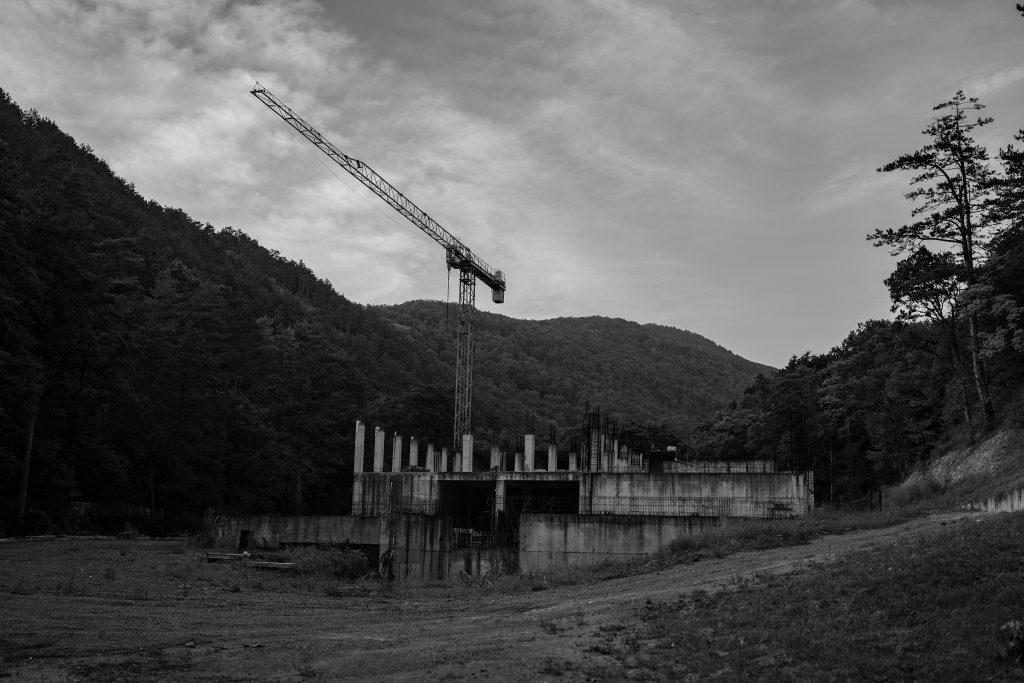Are you aware of the importance of employment law in the construction industry? Whether you are an employer or an employee, understanding the legalities surrounding employment in this field can greatly impact your rights, responsibilities, and overall experience. From handling workplace injuries and disputes to ensuring fair wages and safe working conditions, employment law in construction is a topic that deserves attention. In this article, we will delve into some common legal concerns and provide guidance to help you navigate the complexities of this industry. So, if you find yourself needing more information or seeking assistance, don’t hesitate to pick up the phone and contact the attorney listed on our website. Your rights matter, and we’re here to help.

Understanding Employment Law in Construction
1.1 Overview of Employment Law
Employment law plays a crucial role in ensuring fair and equitable treatment of workers in the construction industry. It encompasses a wide range of legal principles, regulations, and statutes that govern the employer-employee relationship. Understanding employment law is essential for both employers and employees to ensure compliance and protect their rights.
1.2 Importance of Employment Law in Construction Industry
The construction industry is known for its unique working conditions, including hazardous environments and physically demanding tasks. Employment law in construction helps establish guidelines and standards to ensure the safety, wellbeing, and fair treatment of workers. It addresses various aspects such as wages, working hours, health and safety regulations, discrimination, and termination procedures.
1.3 Key Legal Concepts in Employment Law
To navigate the complexities of employment law in construction, it is important to be familiar with key legal concepts. These concepts include but are not limited to:
- Employer-employee relationship: The legal relationship between the employer and the employee, defining rights, responsibilities, and obligations.
- Contracts: Agreements that outline the terms and conditions of employment, including job responsibilities, compensation, and termination clauses.
- Wage and hour laws: Regulations governing minimum wage, overtime pay, and prevailing wage requirements.
- Health and safety regulations: Guidelines and standards aimed at promoting a safe working environment and preventing injuries or accidents.
- Discrimination and harassment laws: Protections against unfair treatment, discrimination based on race, gender, age, or disability, and provisions for addressing sexual harassment in the workplace.
- Workers’ compensation: Coverage and benefits for work-related injuries or occupational diseases.
- Collective bargaining and labor relations: Processes through which workers negotiate for better working conditions and terms of employment with employers.
- Employment termination and layoffs: Grounds and procedures for terminating employment or conducting layoffs in compliance with legal requirements.
- Contractor vs. employee classification: Determining whether workers are independent contractors or employees, which has implications for rights, benefits, and tax obligations.
Employment Contracts in Construction
2.1 Types of Employment Contracts in Construction
In the construction industry, various types of employment contracts are used to define the terms of employment. These contracts may include:
- Permanent or full-time contracts: These contracts establish a long-term employment relationship, typically with no predetermined end date.
- Temporary contracts: Contracts for a specific duration or project, often used in construction for seasonal or short-term needs.
- Fixed-term contracts: Agreements that specify a start and end date for employment, usually for projects with a defined timeline.
- Agency contracts: Contracts between the construction worker and an employment agency that assigns workers to construction companies on a temporary basis.
2.2 Essential Elements of an Employment Contract
An employment contract in construction should include essential elements to protect the rights and interests of both parties. These elements typically include:
- Names and addresses of the employer and employee
- Job title and description
- Compensation details, including wages, benefits, and any overtime provisions
- Hours of work and schedule
- Duration of the contract, if applicable
- Termination clauses and notice period requirements
- Confidentiality and non-disclosure agreements, where necessary
2.3 Terms and Conditions in Construction Employment Contracts
Construction employment contracts should also address specific terms and conditions relevant to the industry. These may include:
- Safety protocols and compliance with health and safety regulations
- Training and certification requirements for specific job roles
- Travel and accommodation arrangements for remote construction projects
- Equipment and protective gear provided by the employer
- Dispute resolution procedures, including mediation or arbitration clauses
- Non-competition or non-solicitation agreements, if applicable
Wage and Hour Laws in Construction
3.1 Minimum Wage Requirements
Minimum wage laws are in place to ensure workers receive a fair and reasonable wage for their work. In the construction industry, each jurisdiction may have its own minimum wage requirements. Employers must comply with these requirements and ensure that employees are paid at least the minimum wage specified by law.
3.2 Overtime Pay and Exemptions
Construction workers often work long hours, and overtime pay laws ensure they are compensated fairly for their additional hours. Overtime pay is typically calculated as a higher rate of pay, usually one and a half times the regular hourly wage, for hours worked beyond the standard workweek. However, certain exemptions may apply to specific job roles or situations. It is important for employers and employees to understand these exemptions to comply with the law.
3.3 Prevailing Wage Laws
Prevailing wage laws require contractors working on public construction projects to pay their employees a predetermined wage rate, which is often established by government authorities. These laws aim to prevent unfair wage practices and ensure that workers receive reasonable compensation for their labor.
Health and Safety Regulations for Construction Workers
4.1 Occupational Safety and Health Act (OSHA)
The Occupational Safety and Health Act (OSHA) sets forth regulations and guidelines to ensure a safe and healthy working environment for all employees, including those in the construction industry. OSHA standards cover a wide range of construction-related hazards, such as fall protection, excavation safety, electrical safety, and the use of personal protective equipment. Employers have a legal obligation to comply with OSHA regulations and provide a safe workplace for their employees.
4.2 Safety Measures and Training Obligations
Construction employers must implement and enforce safety measures to protect workers from potential hazards. This includes providing appropriate safety equipment, regular safety training, and clear instructions on safety protocols. Employees should receive comprehensive training on topics such as hazard identification, proper equipment usage, and emergency response procedures to minimize workplace accidents and injuries.
4.3 Reporting and Compensation for Work-Related Injuries
In the unfortunate event of a work-related injury or illness, construction workers have the right to report the incident and seek necessary medical treatment. Employers are required to have workers’ compensation insurance to provide benefits to injured workers, including medical expenses, wage replacement, and rehabilitation services. It is crucial for both employers and employees to understand the reporting process and their rights under workers’ compensation laws.
Discrimination and Harassment Laws in Construction
5.1 Prohibited Discrimination Practices
Discrimination based on race, gender, age, disability, or other protected characteristics is strictly prohibited in the construction industry. Employers must ensure equal opportunities for all employees, regardless of these factors. Prohibited discrimination practices may include hiring or promotion bias, pay disparities, unfair treatment, or creating a hostile work environment.
5.2 Sexual Harassment Prevention and Response
Sexual harassment is a serious issue in any workplace, including construction. Employers have a legal duty to prevent and address sexual harassment in the construction industry. This involves implementing preventative measures, such as anti-harassment policies and training programs, and promptly responding to any reports of sexual harassment. Employees should feel safe and supported in the workplace, and employers must take appropriate actions to address any claims of harassment.
5.3 Enforcement and Remedies for Discrimination and Harassment
Construction workers who experience discrimination or harassment have the right to pursue legal action against their employers. Remedies for such violations may include financial compensation, reinstatement to a job, stricter policies, and training, as well as penalties for the employer. It is important for workers to understand their rights and consult with an employment law attorney to navigate the legal process effectively.
Workers’ Compensation in Construction
6.1 Eligibility and Coverage for Workers’ Compensation
Workers’ compensation provides benefits to construction workers who suffer work-related injuries or occupational diseases. Eligibility requirements vary by jurisdiction, but generally, workers are entitled to compensation if they can demonstrate that their injury or illness arose out of and in the course of employment. Employers are required to have workers’ compensation insurance to cover medical expenses and wage replacement.
6.2 Reporting Work-Related Injuries and Occupational Diseases
In the event of a work-related injury or occupational disease, construction workers must report the incident to their employer as per the prescribed procedures. Failure to report injuries promptly may jeopardize their entitlement to workers’ compensation benefits. Timely reporting allows for proper medical treatment and ensures a thorough investigation of the incident.
6.3 Benefits and Dispute Resolution in Workers’ Compensation
Workers’ compensation benefits typically cover medical expenses, temporary or permanent disability benefits, vocational rehabilitation, and death benefits for dependents. If disputes arise regarding the amount or duration of benefits, resolution procedures such as mediation or formal hearings may be available. Consulting an employment law attorney with experience in workers’ compensation can help ensure workers receive their entitled benefits and navigate any dispute resolution processes effectively.

Collective Bargaining and Labor Relations
7.1 Basics of Collective Bargaining
Collective bargaining is the process through which employees, often represented by labor unions, negotiate with employers to establish terms and conditions of employment. In the construction industry, collective bargaining agreements can address aspects such as wages, working hours, benefits, safety measures, and dispute resolution procedures. This process allows workers to have a collective voice and ensure their interests are protected.
7.2 Role of Labor Unions in the Construction Industry
Labor unions play a significant role in the construction industry, advocating for the rights and welfare of workers. They negotiate on behalf of construction workers for better wages, benefits, and working conditions. Unions also provide support, legal representation, and resources to their members, helping them navigate employment-related issues and disputes effectively.
7.3 Conflict Resolution and Grievance Procedures
Conflict and disputes may arise in the construction industry, necessitating effective conflict resolution and grievance procedures. Collective bargaining agreements often include provisions for resolving disputes through formal processes such as mediation or arbitration. These procedures provide a structured and fair approach to resolving conflicts and maintaining harmonious labor relations within the construction industry.
Employment Termination and Layoffs in Construction
8.1 Grounds for Termination in Construction
Employment termination in the construction industry can occur for various reasons, including performance issues, misconduct, violation of company policies, economic downturns, or the completion of specific projects. Employers must have valid grounds for termination and follow proper procedures to avoid potential legal repercussions.
8.2 Layoff Procedures and Worker Rights
Layoffs are often a result of economic factors or changes in project requirements in the construction industry. Proper layoff procedures must be followed to ensure compliance with employment laws and protect workers’ rights. This includes providing notice, offering suitable alternatives if available, and meeting any severance payment obligations.
8.3 Severance Payments and Unemployment Benefits
Severance payments may be applicable when employment is terminated in the construction industry. These payments are typically provided to employees as compensation for their loss of employment and can vary based on factors such as length of service and terms of the employment contract. Additionally, terminated employees may be eligible for unemployment benefits, which provide temporary financial support during periods of unemployment. Understanding these entitlements and obligations is essential for both employers and employees.

Contractor vs. Employee Classification in Construction
9.1 Distinction between Contractors and Employees
Determining whether a worker is classified as an independent contractor or an employee is crucial in the construction industry. The distinction depends on various factors, including the level of control exercised by the employer, the nature of the work, and the degree of independence the worker has. Misclassification can have significant legal and financial implications for both employers and workers.
9.2 Implications of Misclassification
Misclassifying workers as independent contractors when they should be classified as employees can lead to legal consequences. Employers may be held liable for unpaid wages, benefits, and other entitlements that employees would typically receive. Contractors may also face tax obligations and penalties for misclassifications. It is essential to understand the legal tests and factors used to determine worker classification to ensure compliance with employment law.
9.3 Legal Tests and Factors for Determining Worker Classification
Various legal tests and factors are taken into account when determining whether a worker is an independent contractor or an employee. These may include the extent of control exercised by the employer, the worker’s investment in their tools and equipment, the provision of benefits, the degree of integration into the employer’s business, and the worker’s opportunity for profit or loss. Consulting with an employment law attorney who specializes in worker classification can help employers and workers navigate this complex area of law.
Employment Litigation and Dispute Resolution
10.1 Common Employment Law Disputes in Construction
Employment law disputes in the construction industry can arise from various issues, including wage disputes, wrongful termination, discrimination claims, and safety violations. These disputes can be costly and disruptive to all parties involved, highlighting the importance of understanding and complying with employment law regulations and seeking legal advice when necessary.
10.2 Options for Resolving Employment Disputes
When employment disputes occur, various options are available for resolving conflicts in the construction industry. These include negotiation, mediation, arbitration, or pursuing litigation in court. The most appropriate method depends on the nature and complexity of the dispute. Legal guidance from an experienced employment law attorney can help individuals navigate the dispute resolution process effectively.
10.3 Benefits of Consulting an Employment Law Attorney
Employment law in the construction industry is complex and navigating its intricacies can be challenging. Consulting an employment law attorney who specializes in construction industry matters can provide valuable guidance and representation. Whether you are an employer or an employee, an employment law attorney can help protect your rights, provide legal advice, assist in dispute resolution, and ensure compliance with all relevant employment laws and regulations.
In conclusion, understanding employment law in the construction industry is crucial for both employers and employees. It covers various aspects such as contracts, wage and hour laws, health and safety regulations, discrimination and harassment laws, workers’ compensation, collective bargaining, employment termination, and worker classification. Consulting with an employment law attorney who specializes in construction industry matters can provide expert guidance and ensure compliance with the law, protecting the rights and interests of all parties involved.